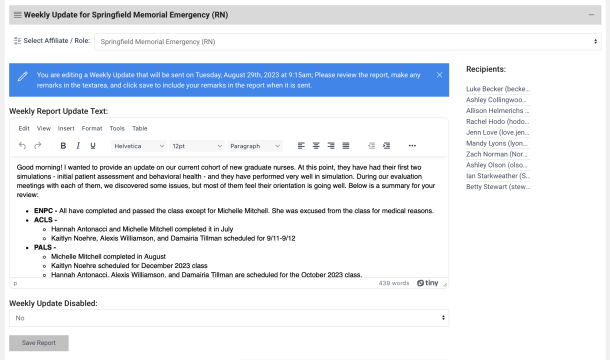Nurturing Longevity in the Emergency Nursing Profession: The Role of Preceptorship
Emergency nursing is a demanding profession that requires not only medical expertise but also excellent communication and leadership skills. Nurses working in this fast-paced environment face unique challenges and opportunities. One key element that can significantly impact an emergency nurse's longevity is becoming a preceptor early in one's career. In this article, we'll explore the career development of emergency nurses, with a particular focus on the role of preceptorship, communication skills, and leadership roles, while also acknowledging the importance of work-life balance.
The Importance of Preceptorship
Preceptorship is an essential aspect of career development for emergency nurses. Early exposure to this role allows novice nurses to learn and grow rapidly in a supportive environment. Preceptors serve as mentors and guides, offering clinical knowledge and practical wisdom to new recruits. This role involves teaching, supervising, and providing feedback to help new nurses adapt to the unique challenges of emergency care.
Developing Preceptor Skills
Becoming a preceptor is not just about teaching clinical skills but also nurturing the essential qualities of effective leadership and communication. The ability to convey information, foster collaboration, and manage conflict are crucial skills that preceptors develop. These skills are transferable to other roles in the emergency department, such as the triage and charge nurse roles, which require effective team coordination and patient care prioritization.
Learn More about NTS Preceptor Training
Communication Skills for Triage and Charge Nurses
Triage nurses play a pivotal role in assessing patients' conditions, determining the order of care, and ensuring a smooth workflow in the emergency department. Effective communication is paramount in this role, as they must interact with patients, families, and healthcare teams while managing limited resources. Preceptors, with their communication skills honed during mentoring, are well-prepared to transition into these roles seamlessly. They can accurately assess patients, make quick decisions, and communicate clearly with their colleagues. This is especially important in high-stress situations where quick thinking and clear communication are critical.
Transitioning into Leadership Roles
Preceptorship is a stepping stone to various leadership roles within the emergency nursing profession. By developing their communication and leadership skills, emergency nurses can aspire to positions like nurse manager, clinical coordinator, or even director of emergency services. The experience gained as a preceptor prepares them to guide and inspire their teams, making them well-suited for leadership responsibilities.
Advocating for Work-Life Balance
While career development is crucial, it is equally important to address the issue of work-life balance for long-term tenure in the emergency nursing profession. Educators can advocate for policies that promote work-life balance, such as flexible scheduling, adequate staffing, and mental health support. A healthy work-life balance is essential to prevent burnout and ensure that nurses can maintain their passion and commitment to the profession throughout their careers.
Emergency nursing is a challenging but rewarding profession that can provide a long and fulfilling career. Preceptorship is vital in career development, equipping nurses with communication and leadership skills. These skills are invaluable not only for roles like triage and charge nursing but also for transitioning into leadership positions. While educators and healthcare organizations can support these career advancements, they must also prioritize advocating for work-life balance to ensure that nurses can enjoy a sustainable and fulfilling career in emergency nursing.

Topics
Popular Articles

Caring for Vulnerable Populations

Version 1.6 of Orientation Tracking
How can we help?
saving...